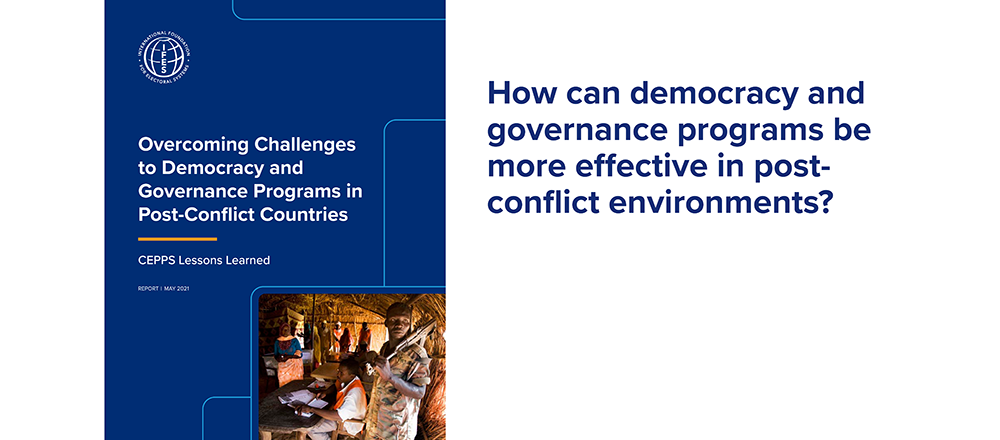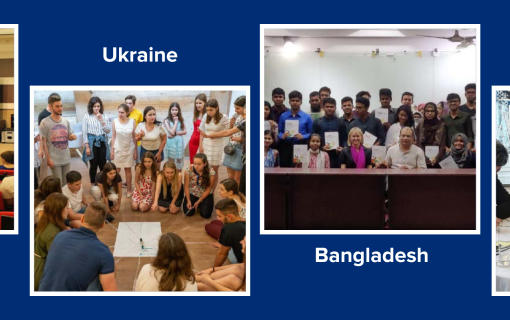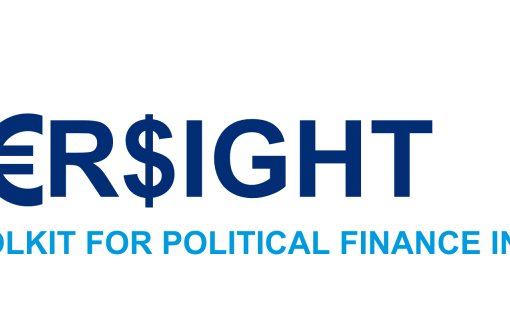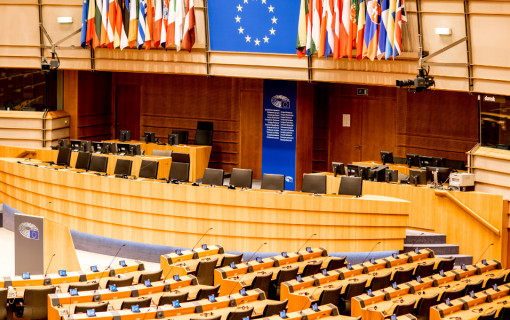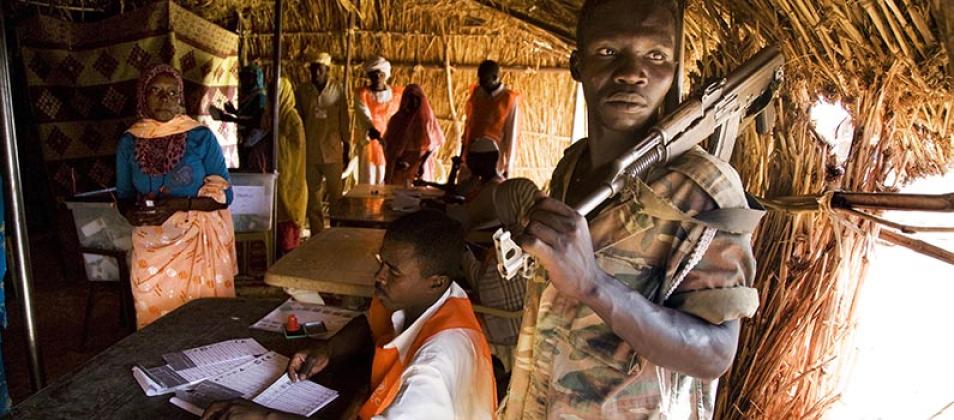
Overcoming Challenges to Democracy and Governance Programs in Post-Conflict Countries: CEPPS Lessons Learned
The quality of democracies around the globe is declining while political crises and conflicts are worsening in several regions. This context makes democracy and governance assistance both increasingly difficult and ever more crucial.
In conflict and post-conflict transitional environments, weakened institutions, political turmoil, social divisions and grievances and security threats often hinder efforts to build or rebuild democracy and good governance. Although the COVID-19 crisis led to several ceasefires in early 2020, conflicts are still on the rise globally. This makes it crucial for donors and implementers to understand how to better support partners in these contexts, optimize resources and adapt and improve existing and future programs.
How can democracy and governance programs be more effective in post-conflict environments?
The new International Foundation for Electoral Systems paper Overcoming Challenges to Democracy and Governance Programs in Post-Conflict Countries: CEPPS Lessons Learned offers recommendations drawn from more than 25 years of programs implemented by the Consortium for Elections and Political Process Strengthening (CEPPS) in 18 countries.
This new paper examines strategies for overcoming challenges and provides recommendations for donors and program implementers.
Overcoming Challenges to Democracy and Governance Programs in Post-Conflict Countries: CEPPS Lessons Learned
Authors: Fernanda Buril, Ph.D., Research Specialist, Center for Applied Research and Learning; Bailey Dinman, Research Coordinator, Center for Applied Research and Learning
Project Lead: Chad Vickery, Vice President, Global Strategy and Technical Leadership
Published on May 18, 2021.




